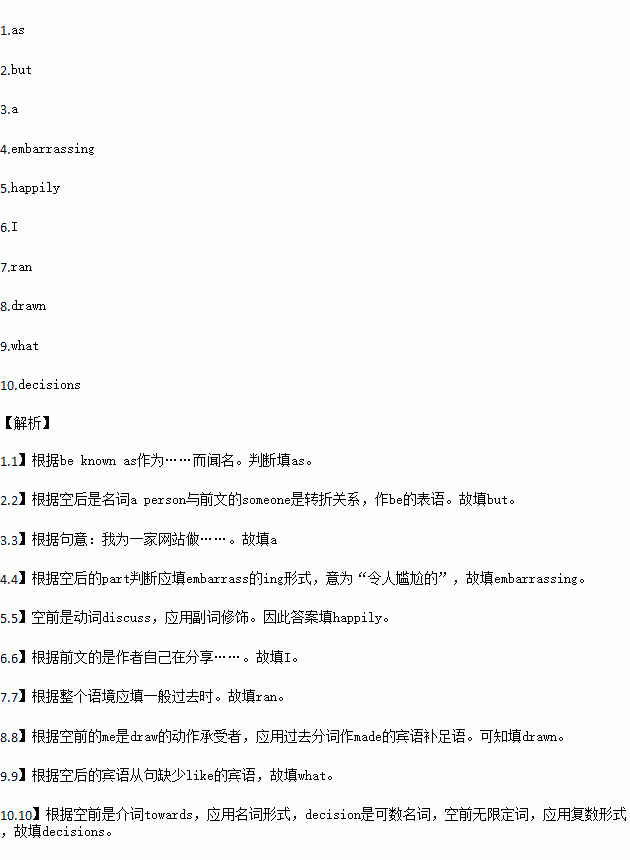题目内容
第三部分:英语知识运用(共两节,满分45分)
第二节(共10小题;每小题1-5分,满分15分)
阅读下面材料,在空白处填入适当的内客(不超过3个单词)或括号内的单词的正确形式。
I have a daughter who just entered the 7th grade, which is known in our area 1. one of the most awkward and socially difficult years for girls.
I did not want my daughter to be someone who did things just to be popular2. a person confident in her own shoes and following her own likes.
I have done activities for Awkward Years Project-for 3. website; Many women write a bit about themselves during the 4.(embarrass) part of their lives - how their-life was arid how it's used out, always a positive inspiration.My daughter and her friends love checking the website and discuss5.(happy)how they recognize the women who have shared.6. shared about the end of the 5th grade when my mother convinced me to cut my hair short …Oh, it tumid out terribly awful just before I started middle school! I7.(run) away at a few teases.
But many years later, I realized that it made me8. (draw)to people who became my friends because of who I was and not9. I looked like and them toward me, for the same reason!
I also became a mom who respected her daughter's likes and graded her towards 10.(decide) but never forced them on her, especially ones that had no effect on the type of person she would be.
 超能学典应用题题卡系列答案
超能学典应用题题卡系列答案
